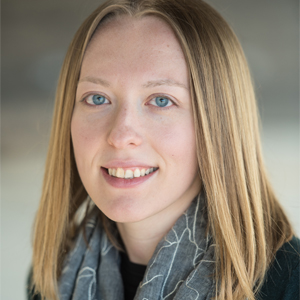We need to make scientific papers understandable for nonscientists
The COVID-19 pandemic has put science in the spotlight. Many people have been waiting on science to save the day. On the other hand, this pandemic also has laid bare the skepticism many people have about the scientific community. This has been illustrated by debates over the effectiveness of masks, arguments over hydroxychloroquine and distrust of vaccines. I believe this skepticism has many causes, but one is undoubtedly our failure to communicate.

As scientists, we are usually behind our lab benches and computers. We are not always good at getting understandable science out there for public consumption. Instead, people rely on the media and alternative sources for their scientific information. Sometimes this works out fine because their sources are reliable. Other times, it ends in disaster and erodes trust in science. No wonder the public doesn’t understand or trust scientists. People spouting misinformation are much more accessible and understandable. So what can we do about this?
For starters, the public is not well equipped to understand the information we publish, because it is technical and full of jargon. This makes going to the source — our publications — virtually impossible for the general public. Thus, they turn to the other sources mentioned above. We need to use the pandemic as the catalyst to change this.
Scientific journals should implement a requirement that scientists submit a short layperson summary to be made available online with the publication. This summary would provide the general takeaways from the data and its significance in ways that are widely understandable. This would make it more difficult to twist or blatantly lie about scientific information. People could go directly to the source without having to rely on the interpretation of the media or other individuals.
Writing a lay summary is a lot of work, and some scientists might not be happy with this requirement. However, this pandemic has taught us that the status quo is not acceptable. If we continue to make science hard for the general population to understand, distrust of science will only increase. We need to take an active role in changing this. Giving the public access to the data in a way they can understand is an important starting place.

You may be wondering if people actually would care and read the research. This is a slightly different example, but a few months ago I shared a post on my science Instagram that summarized the current data we have from papers and preprints on how much COVID-19 vaccines may reduce asymptomatic COVID-19 cases. I did it just focusing on the findings in the papers related to that information. After only three days, the post had reached 12,100 people. Of all my posts, this one had the most views and shares. Why? I believe it is because people want to understand the data; it’s just hard for them to do. Weeding through complicated papers to find the important parts is not something most people can do without formal training.
So what could this look like in practice? Many of us need to write short layperson summaries when we submit grant applications to the National Institutes of Health. This would be an extension of that. I envision a one- to two-page summary max. The goal would be to make the key findings, data and significance understandable to those without formal scientific training. This could be done via bullet points, full paragraphs, illustrations or perhaps a combination of all three. Scientists would need to avoid jargon or to carefully define the jargon that is necessary. Researchers even could link to background information that could be helpful if the reader wants more resources on the topic.
Is this a perfect solution? No. Will it require more work from us? Yes. But making science understandable to the general public is necessary and could help us avoid, or at least mitigate, the next public health crisis.
Enjoy reading ASBMB Today?
Become a member to receive the print edition four times a year and the digital edition monthly.
Learn moreGet the latest from ASBMB Today
Enter your email address, and we’ll send you a weekly email with recent articles, interviews and more.
Latest in Opinions
Opinions highlights or most popular articles

Sketching, scribbling and scicomm
Graduate student Ari Paiz describes how her love of science and art blend to make her an effective science communicator.

Embrace your neurodivergence and flourish in college
This guide offers practical advice on setting yourself up for success — learn how to leverage campus resources, work with professors and embrace your strengths.

Survival tools for a neurodivergent brain in academia
Working in academia is hard, and being neurodivergent makes it harder. Here are a few tools that may help, from a Ph.D. student with ADHD.

Hidden strengths of an autistic scientist
Navigating the world of scientific research as an autistic scientist comes with unique challenges —microaggressions, communication hurdles and the constant pressure to conform to social norms, postbaccalaureate student Taylor Stolberg writes.

Black excellence in biotech: Shaping the future of an industry
This Black History Month, we highlight the impact of DEI initiatives, trailblazing scientists and industry leaders working to create a more inclusive and scientific community. Discover how you can be part of the movement.

Attend ASBMB’s career and education fair
Attending the ASBMB career and education fair is a great way to explore new opportunities, make valuable connections and gain insights into potential career paths.

